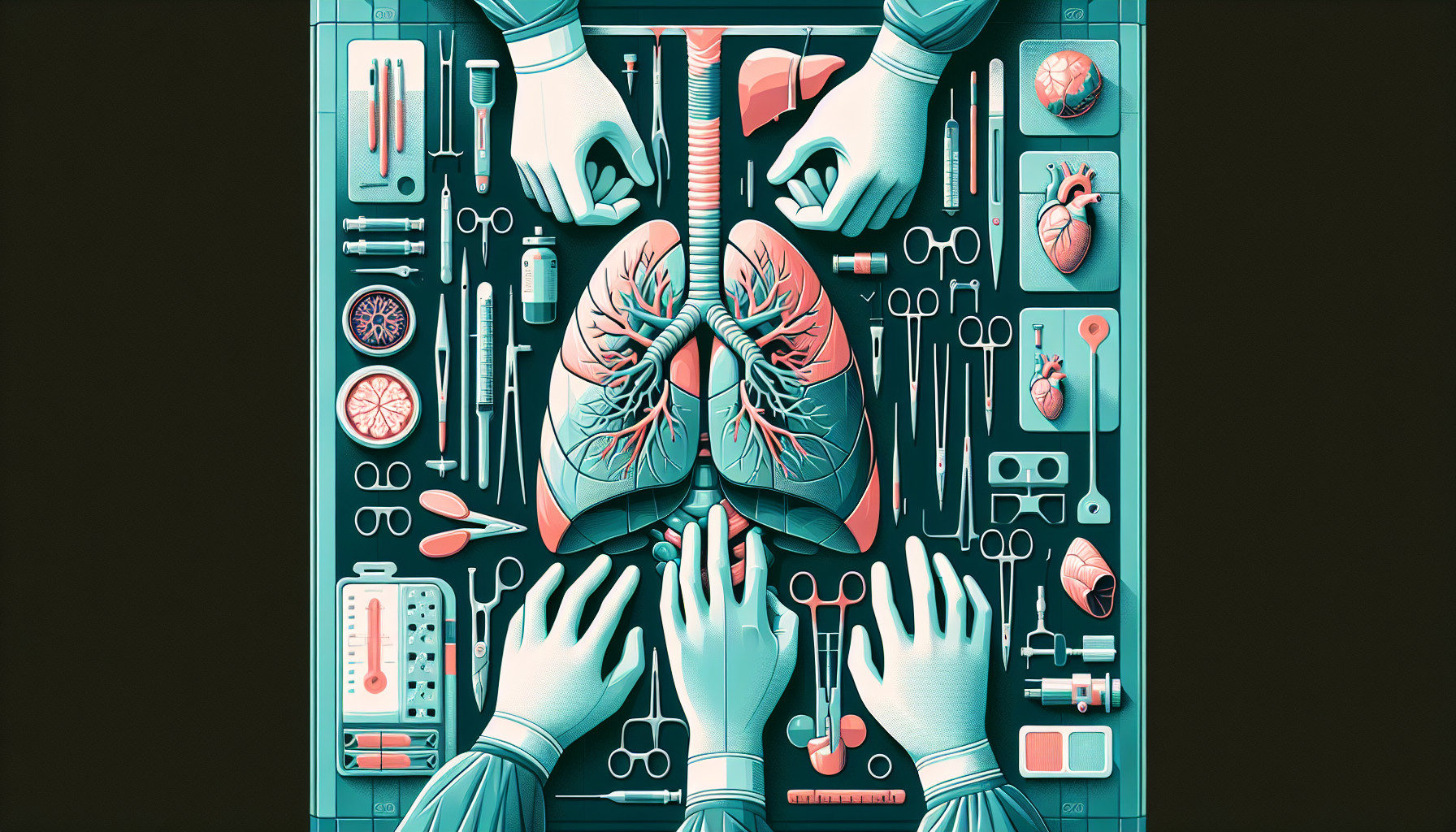Our Summary
A 65-year-old man who previously had COVID-19 was admitted to a hospital due to pneumonia and a potential lung cancer detected through a CT scan. Three months after his COVID-19 treatment, he underwent a surgical procedure to remove a section of his lung without any issues. The tissue removed from his lung showed fibrosis (scarring of lung tissue), a small group of immune cells (lymphocytes), and blood clots inside the blood vessels, but no leftover RNA from the virus. This case study is the first to describe a surgical specimen from a patient who recovered from COVID-19 pneumonia. The report suggests that elective lung surgery can be done safely, without risk of infection, depending on the patient’s lung function.
FAQs
- Can lung surgery be safely performed on a patient who has recovered from COVID-19?
- What was revealed in the surgical specimen of the patient who had recovered from COVID-19?
- What was the result of the lobectomy performed on the COVID-19 patient?
Doctor’s Tip
One helpful tip a doctor might tell a patient about lung resection is to quit smoking if they are a smoker. Smoking can increase the risk of complications during and after surgery, so quitting smoking can improve the chances of a successful outcome. Additionally, maintaining good respiratory health through regular exercise and following a healthy diet can also help with recovery after lung resection.
Suitable For
Patients who are typically recommended for lung resection include those with lung cancer, lung nodules suspicious for cancer, and other pulmonary conditions such as chronic obstructive pulmonary disease (COPD), bronchiectasis, or lung infections. Additionally, patients with respiratory compromise or compromised lung function may also be candidates for lung resection to improve their quality of life and overall health. It is important for patients to undergo a thorough evaluation by a multidisciplinary team to determine if lung resection is the best treatment option for their specific condition.
Timeline
Before lung resection:
- Patient is admitted to the hospital with symptoms of COVID-19
- Computed tomography detects bilateral pneumonia with a lung nodule suspicious for lung cancer
- Patient undergoes treatment for COVID-19
- Patient’s respiratory function is assessed to determine eligibility for surgery
- Lobectomy is scheduled for 3 months after COVID-19 treatment
After lung resection:
- Surgery is performed without any complications
- Surgical specimen reveals fibrosis below the pleura with lymphocytes and intravascular hemorrhagic thrombosis
- No residual RNA from COVID-19 is detected in the specimen
- Patient recovers from the surgery and is monitored for post-operative complications
- Elective thoracic surgery is deemed safe for patients who have recovered from COVID-19, depending on their respiratory function.
What to Ask Your Doctor
- What is the reason for the lung resection and how will it benefit my health?
- What are the potential risks and complications associated with lung resection surgery?
- How long is the recovery period expected to be and what kind of follow-up care will be needed?
- Will I need any additional tests or procedures before the surgery?
- How will my breathing and lung function be affected after the surgery?
- Are there any specific lifestyle changes or precautions I should take after the surgery?
- How likely is it that the lung nodule is cancerous and what are the treatment options if it is?
- Can you explain the findings from the surgical specimen and how it relates to my recovery from COVID-19 pneumonia?
- Are there any long-term effects or complications I should be aware of following the surgery?
- Are there any alternative treatment options to consider before proceeding with the lung resection?
Reference
Authors: Sakai T, Azuma Y, Aoki K, Wakayama M, Miyoshi S, Kishi K, Tateda K, Homma S, Iyoda A. Journal: Gen Thorac Cardiovasc Surg. 2021 Jul;69(7):1159-1162. doi: 10.1007/s11748-021-01630-4. Epub 2021 Apr 3. PMID: 33811611
